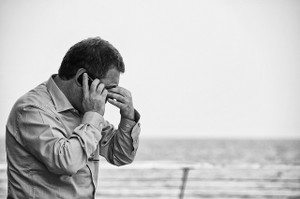The Waiting Place
If sitting on the edge of your seat and holding your breath until everything turns out okay actually worked, I’d have a lot of experts I could recommend. I’ve worked with so many good people whose lives are impacted by their loved one’s addictions. They’re stuck in a purgatory of sorts – in what Dr. Seuss called, “The Waiting Place.”
They share sentiments like, “I will get on with my life as soon as I know that everything is resolved with my son.” I understand the feeling that everything must come to a screeching halt when those we hold dearest are active in addiction but I also know this:
Life goes on and too often passes us by this way.
Parents, especially mothers, struggle with worrying. It’s a maladaptive response to fears – real and imaginary. When there’s nothing we can do, we agonize, lose sleep, and fret. It feels necessary, though I’m fond of the expression, “Worrying is like a rocking chair. It gives you something to do but it doesn’t get you anywhere.” I appeal to these folks by saying, “If it helped at all, I’d encourage you to do it.”
Overcoming Obstacles to Acceptance
Powerlessness
The fundamental choice is always acceptance of powerlessness. There is a woman in my local Nar-Anon community whom I greatly admire. Her response to all that she could not do was to focus her attention and efforts on what she could do. This allowed her to do something rather heroic. She knew that others must struggle as she does and so she developed more networks and more meetings for folks to struggle together.
Struggling Alone
The only thing worse than suffering is suffering alone. Coming together allows us to grieve and grieving allows us to release pain and suffering. It allows us to create something meaningful out of something that is otherwise an overshadowing and painful aching of the soul.
Blaming Ourselves (Misplaced Guilt)
As our children are growing up, we tend to see their behavior and attitudes as a direct reflection on our parenting. This doesn’t seem to stop when they enter adulthood. We continue to monitor from afar and while we credit them fully for their successes, we at times wonder where we went wrong when they struggle or fail.
It’s an empty series of epiphanies as we realize again and again that it’s not our fault. We didn’t create it, can’t prevent it, and can’t control it. Still we manage to feel responsible.
Guilt comes in two forms – rational and irrational.
- Rational guilt is useful. It’s our conscience telling us we’ve done wrong. We seek to make amends and to change our ways.
- Irrational guilt is simply discomfort with our underlying emotions. Guilt and sadness become default settings. This is why we need to not only to grieve but also to seek comfort and happiness.
Dealing with Anger
– John Denver
We’re often angry at those we love and this feels wrong (it’s not). We get stuck in the Dr. Jekyll and Mr. Hyde dichotomy of who our loved ones are when they’re using and who we know them to be when they’re clean/sober. Seeing our loved ones held hostage by obsession and compulsion takes a toll on us.
We’re angry at their disease and this leaves us feeling impotent. Where are we to direct our righteous anger? The disease is not something we can wrap our hands around and render harmless.
What to Do While We Wait
- Do everything in your power to learn about enabling to ensure that all of your efforts to support your loved ones are healthy.
- Become knowledgeable regarding local resources for people in recovery in your community professionally, amongst paraprofessionals, and through self help groups.
- Advocate for expanded resources at every level: municipal, state, and federal. You will likely be outraged once you see how sparse these resources have become.
- Educate yourself regarding the nature of addiction and co-occurring disorders, and gain insight into important topics like Adult Children of Alcoholics.
- Support and join local meetings of Al-Anon and Nar-Anon and be amongst kindred spirits.
- Become a Recovery Ally – someone who is supportive of people who are in recovery from addiction; whether this means helping them get reestablished in employment, housing, or with other basic needs fulfillment as they seek to restart their lives.
- Improve your self care. Consider this: how healthy and prepared do you wish to be when at last your loved one is ready to receive support?
- Grow spiritually. Whether through nature, religion, or personal practices, draw from a power greater than yourself that provides serenity, wisdom, and courage.
Joy in spite of everything. For all that the disease of addiction claims, let us not allow other relationships and important pursuits to suffer as we live with the unknowns.
- About the author Jim LaPierre:
- My story is I'm forever a work in progress and I love connecting with REAL people who are doing great things. I'm blessed to be making a living doing something I love. I'm a proud dad and the luckiest husband ever. I'm an aspiring author - check out my recovery blog at: recoveryrocks.bangordailynews.com Thanks! Jim
Page last updated Oct 18, 2015


